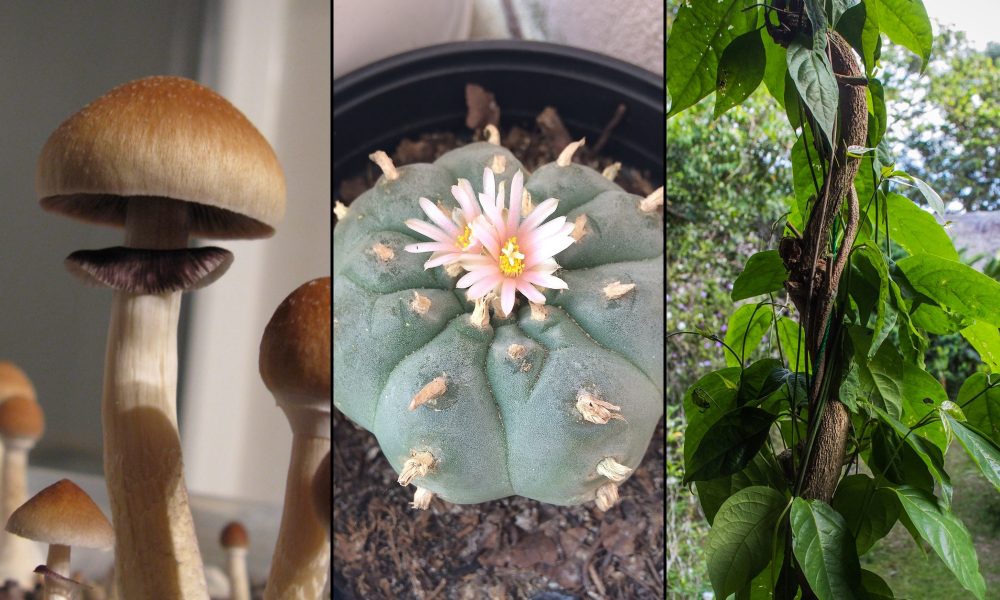Amid the ongoing military conflict in Ukraine, a U.S.-based psychedelics therapy training organization is teaming up with Ukrainian health professionals to offer their services to help treat trauma with plant-based medicine.
One month after Ukrainian President Volodymyr Zelensky signed legislation to legalize medical marijuana—in part to help soldiers address physical and mental wounds incurred during the nation’s war with Russia—the U.S. company Fluence announced on Wednesday that it has rolled out a new initiative to facilitate treatment with psychedelics in the country.
In partnership with the Ukrainian Psychedelic Research Association (UPRA) and the U.S. nonprofit Heal Ukraine Trauma (HUT), Fluence said it is providing free training materials for psychologists and medical doctors in the war-torn nation who are interested in incorporation psychedelics into their practices.
Unlike medical cannabis, psychedelics have not been legalized in Ukraine. Even so, more than 540 mental health professionals have already signed up for the program, Fluence said.
“We are deeply honored to support Ukraine’s mental health professionals through our collaboration with the Ukrainian Psychedelic Research Association and Heal Ukraine Trauma,” Ingmar Gorman, CEO of Fluence, said in a press release. “By providing our psychedelic therapy training materials, we aim to empower practitioners to heal the profound psychological impacts of war. This initiative underscores our commitment to fostering hope and resilience in the face of adversity.”
Fluence has also participated in studies on the therapeutic potential of psilocybin for the treatment of alcoholism, and Gorman separately touted the results of a clinical trial last year that’s paved the way for Food and Drug Administration (FDA) consideration of MDMA as a possible therapeutic for post-traumatic stress disorder (PTSD).
In Ukraine, as the Russian invasion enters its third year, lawmakers enacted legislation earlier this year to provide access to medical cannabis, with a focus on treating trauma associated with the conflict. The president signed the legislation into law last month.
MP Dmytro Gurin of the president’s Servant of the People party and a member of the parliament’s health committee, told members of the European Parliament last November that he wants support to help make Ukraine a center for psychedelics research to address the mental health crisis connected to the war.
“We have this catastrophic challenge ahead,” he said. “And such challenges, they need bold decisions.”
Meanwhile, Ukraine’s military has reportedly engaged with U.S.-based psychedelics advocates on exploring ibogaine to treat traumatic brain injuries among service members. A study published in January spoke to the “dramatic” and “life-changing” effects of the psychedelic among veterans with PTSD and depression.
“The transformative power of psychedelic-assisted therapy is a beacon of hope for our nation that has been profoundly affected by the scars of war,” Oleh Orlov, CEO of UPRA, said of the new Fluence initiative.
“This innovative approach to mental health is not just about healing,” he said. “For Ukraine, where the collective psyche bears the heavy burden of war and related traumas, this represents not just a medical advancement, but a crucial step towards national recovery and emotional resilience.”
In the U.S. in January, the Department of Veterans Affairs (VA) separately issued a request for applications to conduct in-depth research on the use of psychedelics to treat PTSD and depression.
Meanwhile, FDA recently joined scientists at a public meeting on next steps for conducting research to develop psychedelic medicines.
That came months after FDA issued historic draft guidance on psychedelics studies, providing scientists with a framework to carry out research that could lead to the development of novel medicines.
Connecticut Lawmakers Consider Psilocybin Decriminalization Bill In Joint Committee Hearing
Photo elements courtesy of carlosemmaskype and Apollo.
Read the full article here

